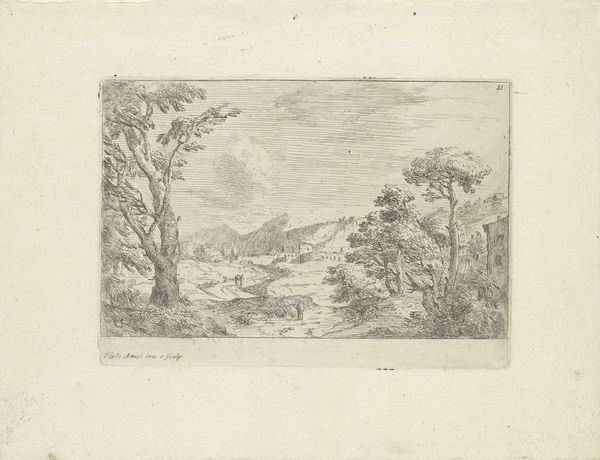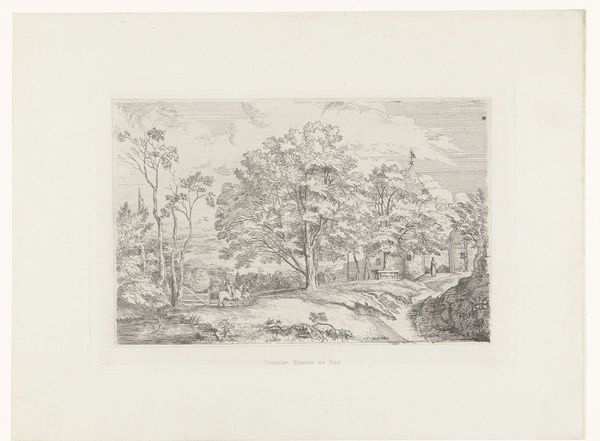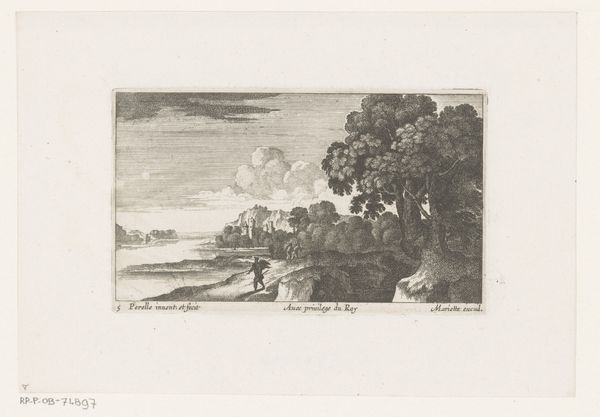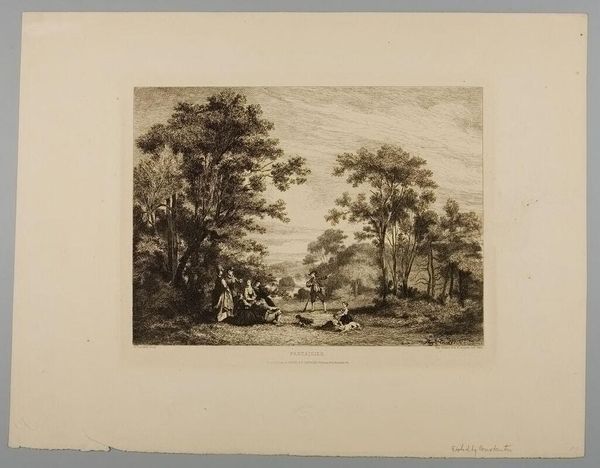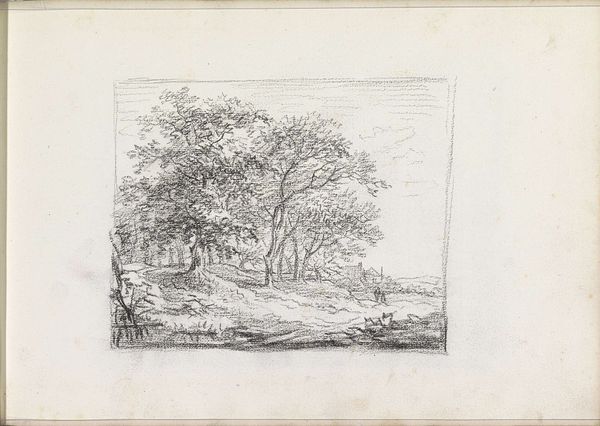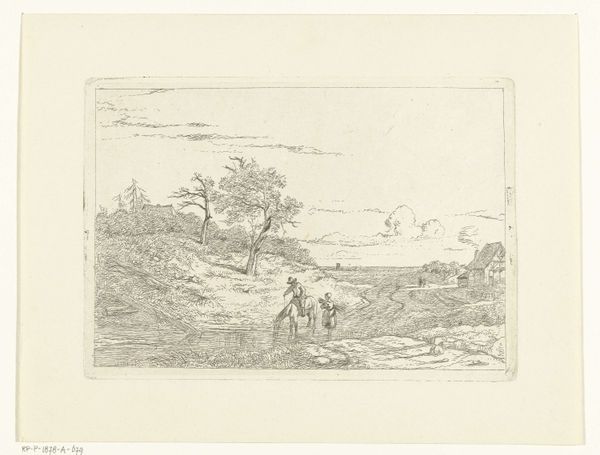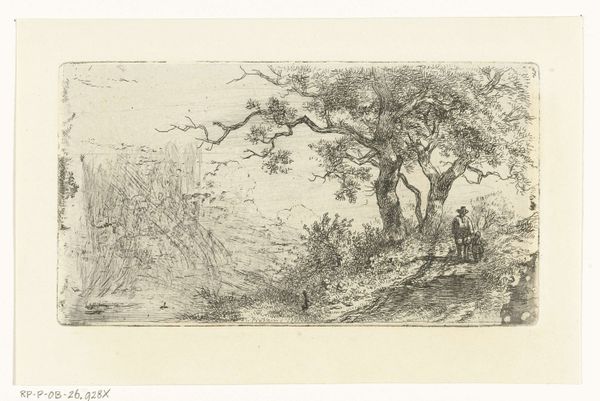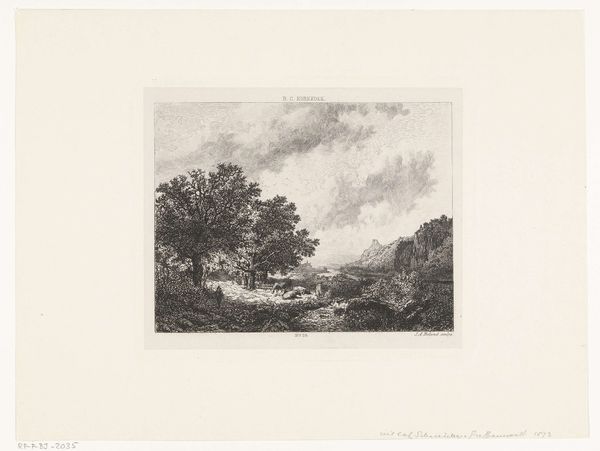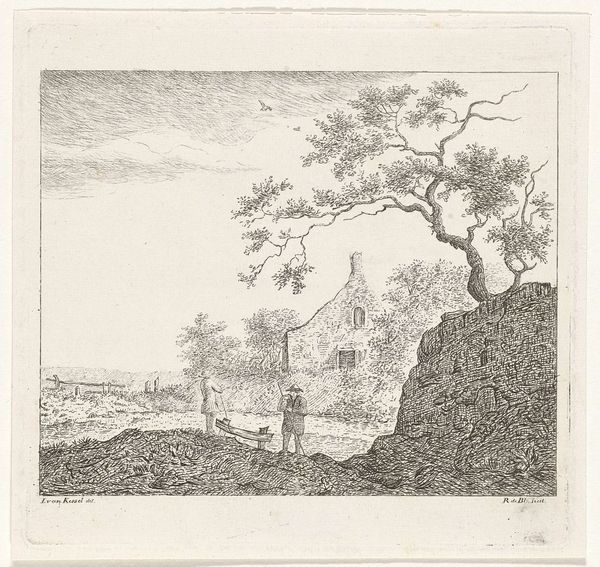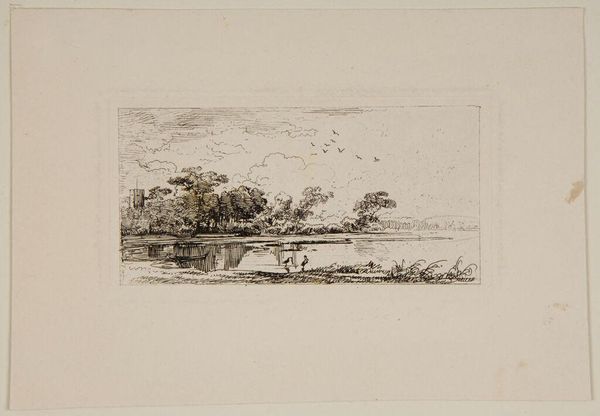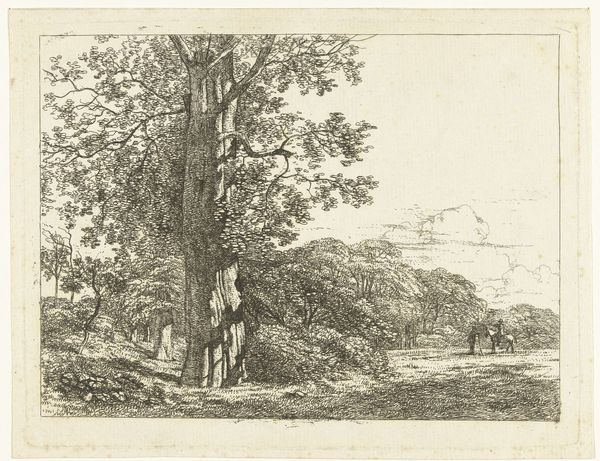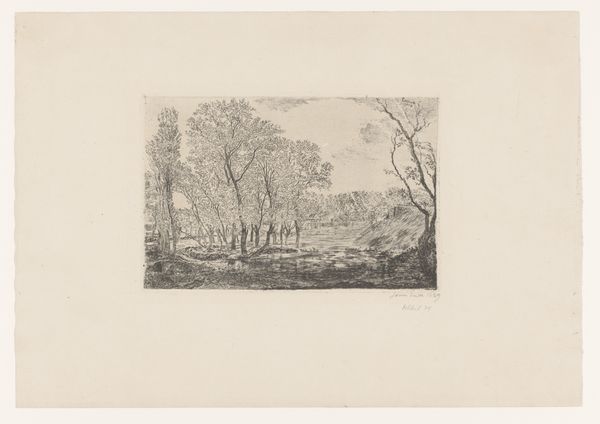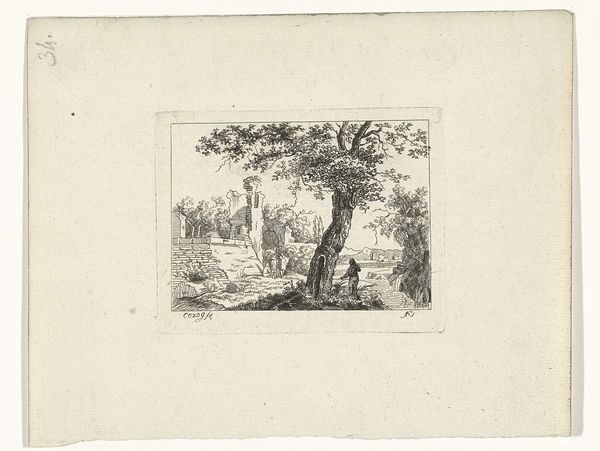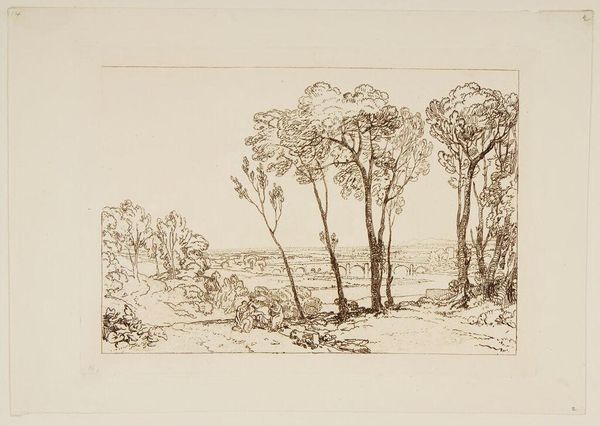
etching
#
etching
#
landscape
#
etching
#
genre-painting
#
realism
Dimensions: height 215 mm, width 264 mm
Copyright: Rijks Museum: Open Domain
This etching, "Landschap met herders," was produced by Friedrich Wilhelm Burmeister, a German artist, in the late 19th century. It encapsulates a romantic vision of rural life. Made in Germany, this artwork reflects a period marked by burgeoning industrialization and urbanization. The choice of a serene landscape with shepherds, donkeys, and dogs wasn't merely aesthetic. Rather, it offered a pointed visual contrast to the realities of urban existence. The shepherds here become symbols of a simpler, idealized past, one that many felt was being eroded by the march of progress. Consider the role of institutions during this time. Museums, like the Rijksmuseum, were becoming increasingly important in shaping national identity. By exhibiting scenes like this, they subtly promoted certain values—a reverence for nature, an appreciation for the traditional—in the face of rapid social change. It's worth exploring the archives of art academies and exhibition catalogues to understand how such landscapes were received and understood in their own time.
Comments
No comments
Be the first to comment and join the conversation on the ultimate creative platform.
